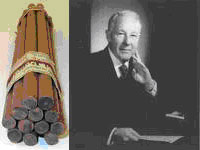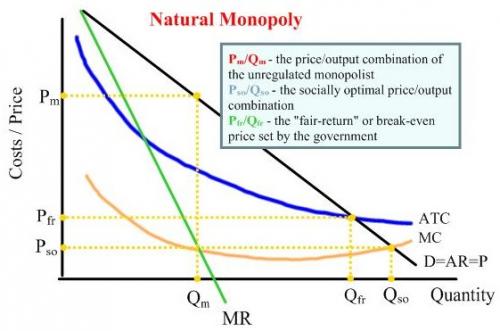Leonard E. Read (26 sept. 1898 - 14 mai 1983) a fondat FEE (Foundation for Economic Education), primul think-tank libertarian în SUA. „I, Pencil" este cel mai cunoscut eseu al său, publicat în 1958 în revista The Freeman. „Povestea lui Read a devenit o piesă clasică de literatură care, într-un mod succint şi persuasiv, ilustrează atât mâna invizibilă a lui Adam Smith - posibilitatea cooperării fără nicio constrângere - cât şi [...] rolul...
Citeste mai departeToate intrarile din anul 2008
Leonard E. Read (September 26, 1898 - May 14, 1983) was the founder of the Foundation for Economic Education, which was the first modern libertarian think tank in the USA. "I, Pencil", his most famous essay, was first published in the December 1958 issue of The Freeman. "Leonard Read's delightful story, "I, Pencil," has become a classic, and deservedly so. I know of no other piece of literature that so succinctly, persuasively, and effectively illustrates the meaning of both Adam Smith's invisible...
Citeste mai departe[Presidential address delivered before the London Economic Discurs prezidenţial în faţa London Economic Club, November 10, 1936, reprinted from Economica IV (new ser., 1937), 33-54] THE ambiguity of the title of this paper is not accidental. Its main subject is, of course, the role which assumptions and propositions about the knowledge possessed by the different members of society play in economic analysis. But this is by no means unconnected with the other question which might be discussed under the...
Citeste mai departe[Discurs prezidenţial în faţa London Economic Club, 10 noiembrie 1936, publicat în Economica, IV (serie nouă, 1937), pp. 33-54] Ambiguitatea titlului acestui eseu nu este accidentală. Subiectul său principal este, bineînţeles, rolul pe care ipotezele şi propoziţiile despre cunoaşterea deţinută de către diverşii membri ai societăţii le au în analiza economică. Dar acest lucru nu este în niciun caz fără legătură cu cealaltă chestiune care ar putea fi discutată...
Citeste mai departe"Însuşi termenul "utilitate publică" este unul absurd. Fiecare bun este util „publicului" şi aproape fiecare bun poate fi considerat „necesar". Orice desemnare a unor industrii ca fiind „utilităţi publice" este deci complet arbitrară şi nejustificată." (Murray N. Rothbard) Majoritatea aşa-ziselor "utilităţi publice" au primit monopol guvernamental pe bază de franciză, deoarece se consideră că acestea sunt „monopoluri naturale". Într-o manieră simplistă,...
Citeste mai departe"The very term "public utility" ... is an absurd one. Every good is useful to "to the public", and almost every good. . . may be considered "necessary." Any designation of a few industries as "public utilities" is completely arbitrary and unjustified." (Murray Rothbard)
Citeste mai departe











